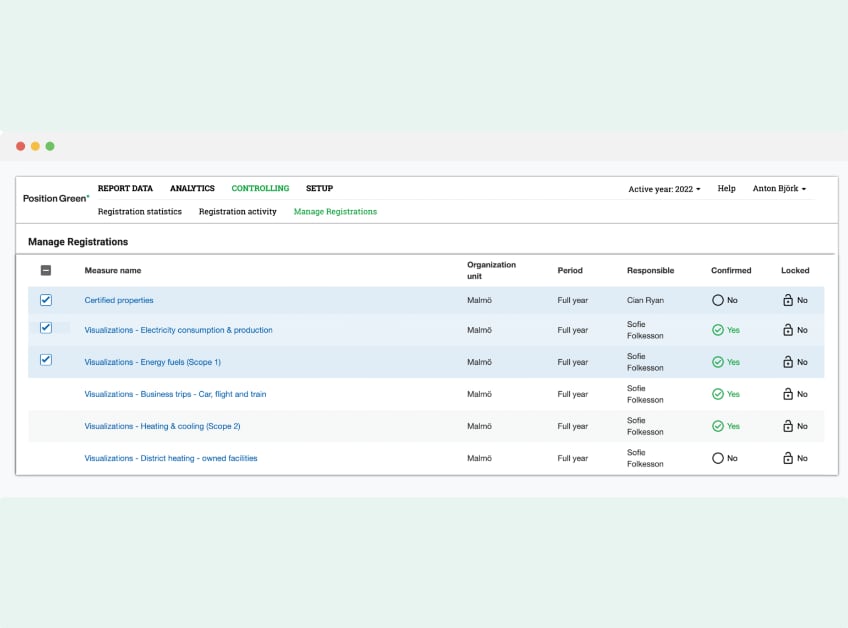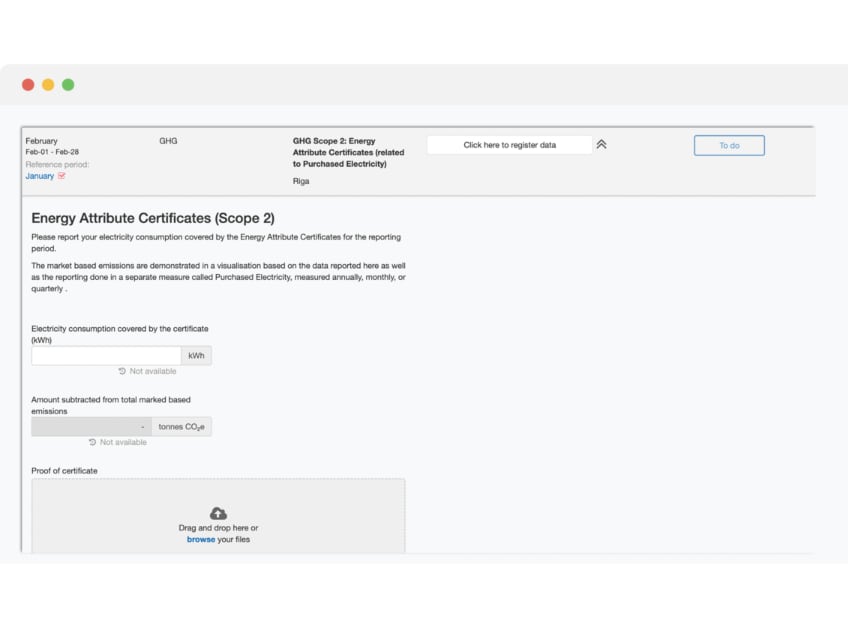Key data trends and insights from the European reporting season

With a view to the latest European reporting season, what key data trends have you identified?
The sustainability reporting field is transforming in pace with a rapid rise in demand. The wide scope of the EU’s new Corporate Sustainability Reporting Directive as well as the growing interest in sustainable finance and investor demands are the primary forces behind this transformation. These new factors are shaping the way sustainability data is being treated and managed in our ESG software.
Reporting on sustainability has changed from being mostly “open to interpretation” to becoming much more standardised and transparent. Businesses are investigating what and how they must report to ensure compliance. Our ESG software provides surveys and standard measure templates to achieve this.

Have you noted any changes compared with previous years?
A definite trend is that businesses are beginning to incorporate more levels of documentation to support their data collection. They may include supporting documentation alongside the reported figures such as Energy Attribute Certificates, EPDs and invoices. There is also a higher awareness of the various methodologies and principles that are used within, for example, the GHG Protocol – Corporate Standard. This is also being documented and communicated more extensively by our customers now.
Companies that use the Four Eyes Principle or Internal Review approach, in which data is controlled and verified by a sustainability controller, are also increasing the overall data accuracy. In response to this trend, we’ve introduced supporting features to facilitate this procedure in the platform.
When it comes to the material itself, numerous businesses have put time and effort into improving their Scope 3 data. The expectation that Scope 3 may turn into a required disclosure under the ESRS is the reason for this. In the platform, the typical Scope 1 & 2 setup with attempts to catch parts of Scope 3 has in many cases transformed into full Scope 1, 2, and 3 setups. Additionally, more detailed mapping of biogenic emissions is being done now to a larger extent than before.
Other clear trends include businesses shifting to quarterly GHG reporting, broadening the scope of disclosures in line with GRI and adjusting to the GRI 2021 standard, and increasing focus on Human Rights Due Diligence. The requirement of limited assurance is another aspect of the CSRD. The platform makes it easier for auditors to assure the data is consolidated in a structured format that does not depend on individuals in the company.

What are the common challenges in reporting?
Some companies are starting at a basic level in terms of how the existing frameworks are interpreted and used. While the scope is expanding, it can be difficult to start doing things correctly. For many businesses, effective reporting practices and stakeholder engagement are key challenges. Because of this, even though the new reporting standards may not be directly applicable until the following year or later, it is crucial to start preparing your organisation now.
What are the key developments and trends going forward?
Standardisation and compliance are key development trends moving forward. Future comparability and clarity are to a large extent dependent on standardisation and high data quality. As the scope of reporting increases and capital gets relocated to green investments, it will be of utmost importance to have a well-structured and effective process for handling your sustainability data.
How can we help?
With Position Green’s custom ESG software, you can efficiently collect, analyse and report sustainability data from your entire organisation and value chain with full traceability, and turn reporting into measurable KPIs and actionable insights.
- Adaptable to different levels of ambition
- Traceable and compliant to accelerate impact
- Consolidated to empower better decision making

Petter Olson
Platform Onboarding Director
Position Green


